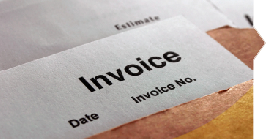Type of Loans

Factoring is the conversion of a business’s accounts receivables into immediate cash. This is accomplished by the outright purchase of the receivables at a discount by a financing company, known as a Factor. Cash flow is probably the most important element in the success of a business. Accounts receivable may be the biggest asset on a company's balance sheet yet represents the best source of operating capital that is in constant disuse. Factoring improves cash flow. A business can use cash currently tied up in receivables to increase sales and take advantage of supplier discounts. Factoring accelerates cash flow by eliminating the time lag between the delivery of goods or the performance of a service and the payment for it.
Factoring is not a loan and is not based on a business’s ability to repay the money. Instead, it is based on the ability of your customers to pay what they owe. Once a Factor purchases the receivable invoice, they assume the responsibility for its collection. The Factor is also responsible for accounts receivable management functions, such as credit investigation, accounting and bookkeeping. As compensation for these activities, the Factor purchases the receivables at a discount.
A Factor will advance up to 70% - 90+% of invoice amounts with the remainder retained as a reserve against loss from complaints and returns. This advance of cash within 24-48 hours means you can accelerate your cash flow by speeding up payment of the receivables. You will have an immediate source of funds for operating expenses and future growth. You will be able to use your own hard earned cash without having to wait 30, 60, 90 or 120 days to collect from customers. Additionally, since usually only receivables are used as collateral for the cash advance, other assets (such as real estate and equipment) can be used for future borrowing.

